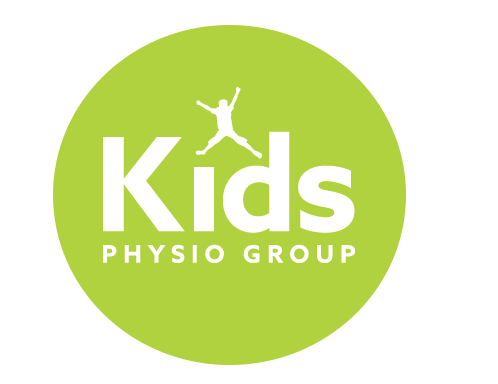Pediatric Physiotherapist’s Unique Role in Supporting Infant Feeding

Pediatric Physiotherapist’s Unique Role in Supporting Infant Feeding
1 hour 30 minutes
The instructors
Overview
Feeding is an infant’s first motor milestone. When feeding concerns arise, it can be very challenging for families, so a multidisciplinary approach to support parents and the infant can help lead to the best outcomes. In this webinar, we will aim to expose learners to the important role of infant physiotherapy for feeding concerns and provide strategies to support families with infant feeding-related goals. As experts in muscular and neuromuscular development, physiotherapists collaborate closely with feeding specialists, such as lactation consultants and provide the unique service of specialized infant feeding assessments and treatment strategies.
Infants can experience a range of feeding-related issues including including difficulty latching to the nipple or bottle, poor milk transfer, painful feeding for the parent, gastrointestinal distress, or even difficulties with neuroregulation and feeding. In this webinar, we will discuss common concerns that can affect feeding, such as asymmetries, atypical oral anatomy, tightness, weakness, and coordination issues of the tongue, jaw, neck, face or whole body.
We will also provide insights into infant feeding-specific assessment components, as well as treatment strategies including strengthening, hands-on techniques (bodywork), and other strategies in the physiotherapy scope of practice.
This webinar is intended for any healthcare professionals with an interest in learning more about physiotherapy support for infant chest or bottle feeding. Please note, this webinar will focus on infants <4 months of age and will not address introduction to solid foods.
Learning objectives
In this online course, you will learn and understand:
- The importance of collaborative management of feeding difficulties.
- The unique role of physiotherapy in infant feeding.
- The causes of common infant feeding concerns/difficulties, including tongue ties, torticollis, global tension, and reflux.
- The physical signs and symptoms that may indicate feeding difficulties;
- The components of an oral-motor physiotherapy assessment.
- Some of the treatment and management strategies used by physiotherapists, including tummy time strategies, bodywork, oral. release/strengthening, and parental education.
Registration and Replays
- Regular registration: CAD $49
- Early-bird registration: CAD $39 (ends May 22nd)
The instructors

Paediatric Physiotherapist and Clinical Manager at Kids Physio Group
Kasha Pyka is a paediatric physiotherapist and Clinical Manager at Kids Physio Group Toronto Leaside location. She received a Bachelor of Science from McMaster University, a Master of Science in Rehabilitation Science from Queen’s University, and a Master of Science in Physical Therapy from Queen’s University.
While managing a large caseload of infants with torticollis and delayed gross motor skills, Kasha recognized the gap in support for families with feeding related concerns. This inspired her to seek continuing education in this topic including Bodywork for Better Breastfeeding, and Clinical Management of Infants with Tethered Oral Tissues. Kasha uses her physiotherapy expertise to consider the effects of the neck, head, and face on the function of mouth and tongue and provides families with a well-rounded treatment plan to meet their chest/bottle feeding goals as well as motor development goals.
In her spare time, Kasha can be found on the trails with her dog, or exploring the city of Toronto one croissant shop at a time!

Paediatric Physiotherapist and Kids Physio Group Clinician
Lori is a proud and passionate Newfoundlander who has spent her 20-years as a physiotherapist working with children. Currently, she works in a level III neonatal intensive care unit (NICU) and with Kids Physio Group - Halifax.
Lori has a post-graduate education in neurodevelopment, Family Integrated Care, Trauma-Informed Care, infant Neuro-Developmental Treatment (NDT), Bodywork for Better Breastfeeding, Neonatal Touch and Massage Therapist Certification (NTMC-TC, CIMI/CIIT) and infant feeding.
She is a dynamic community educator delivering workshops on the importance of early relationships, connection and environment in fostering sensory and movement skills. She is always excited to learn something new, and be involved in research and quality-improvement initiatives as part of her work. Lori’s currently working on her Neonatal Therapy (CNT) Certification and her Neonatal Behavioural Observational Scale (NBOS) certification.
While Lori could once be found travelling the world, today, she embraces the spirit of adventure through raising her family in Halifax, Nova Scotia. She can be found at the beach, hiking with her dog, Birdie and trying to survive menopause.

Kids Physio Group sets the standard for pediatric physiotherapy, and is renowned globally for making physio FUN.
We were the first to provide this service in British Columbia and to be able to expand across Canada. We are proud to have treated thousands of children of all ages and abilities over the past 10 years. Babies, kids, and teens function differently from adults, and our space and team are equipped to provide the highest quality physiotherapy care, delivered in an engaging way.
Our specialized equipment and treatments focus on improving mobility, strength, flexibility, balance, coordination, endurance, gross motor skills, cognition, motor planning, confidence, motivation, and more. With a large, experienced team we are able to provide custom programs based on each child’s distinct needs from birth to 18 years old.
Typically developing children with injuries, or those looking to extend or improve their athletic careers through pre-habilitation enjoy our open space, engaging equipment, and thoughtful treatment plans, while those with lifelong conditions benefit from the playfulness and our creative support to help them stay motivated in their rehabilitation journey.